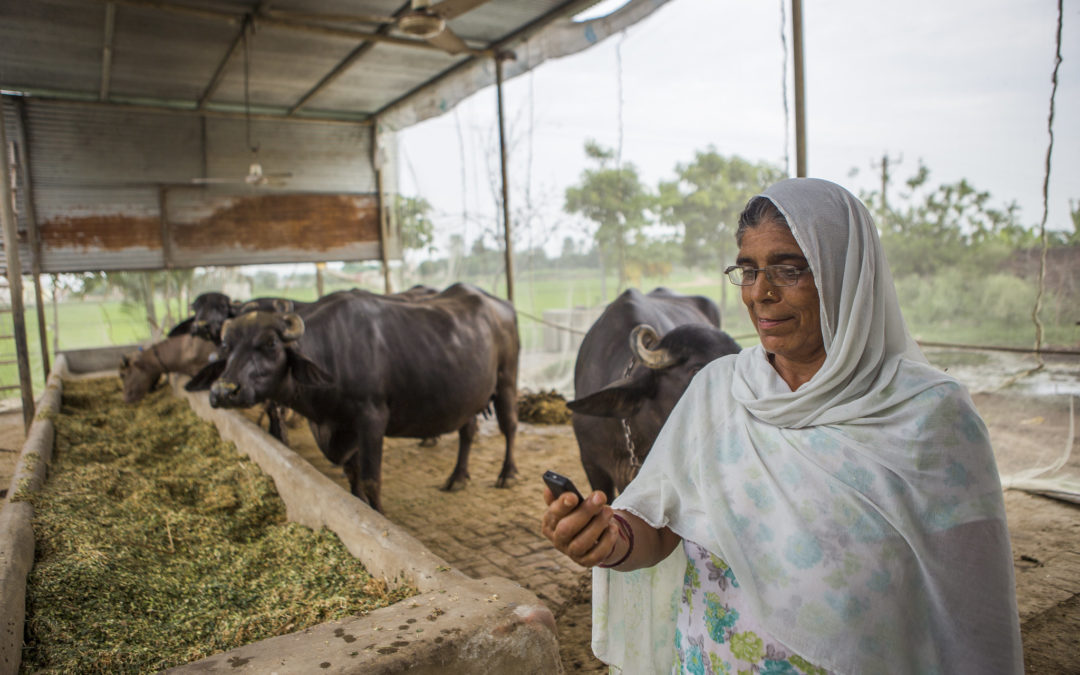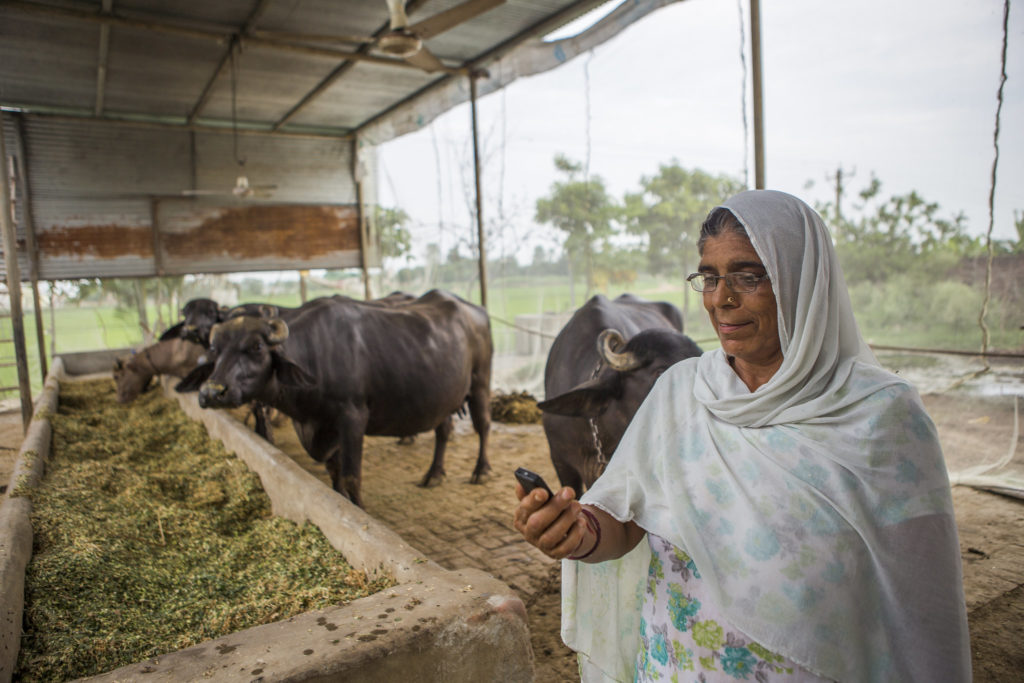Announcing the 2020 Inspire Challenge finalists
Fifteen innovative big data projects have qualified as finalists of the 2020 CGIAR Inspire Challenge and will pitch at the upcoming virtual Convention on Big Data in Agriculture.
From the set of submissions, fifteen projects have been selected as 2020 Inspire Challenge finalists. The teams will pitch their proposals to a panel of expert judges at the virtual CGIAR Convention on Big Data in Agriculture, 19-23 October 2020.
The winning teams will be revealed at the convention’s Inspire Challenge awards ceremony and receive grant funds to carry out their big data projects.
Register for the CGIAR Convention on Big Data in Agriculture and tune into the Inspire Challenge pitch session (23 October at 4:30 – 5:00 PM CEST) and Inspire Challenge awards ceremony (23 October at 6:30 – 7:00 PM CEST).
The Inspire Challenge is the signature innovation process of the CGIAR Platform for Big Data in Agriculture and seeks to source and foster new solutions for digital agriculture in developing economies. It challenges research organizations to partner with industry in order to leverage public good data, especially CGIAR data, to solve intractable challenges at scale.
For more info on the 2020 finalists, visit their project pages:
- Rapid field detection of hazards in aquatic foods| WorldFish & ZenSpectra
The project proposes a portable, user-friendly point-and-shoot near infrared (NIR) device for rapid field screening of key aquatic food contaminants. The devices would be deployed to remote areas for monitoring in aquaculture and small-scale fisheries value chains.
- Learning from NFC cards in emergency responses| IFPRI, ADM & CEPPAG
This project proposes a pilot intervention using near-field communication (NFC) cards to deliver support during emergencies to households in Nampula province, Mozambique. Going beyond agricultural subsidy e-vouchers, these cards provide a wider set of choices, including agricultural inputs, food items, and health services.
- Croppie – the PhotoCropping app| The Alliance of Bioversity International and CIAT, Producers Direct & IDEO.org
Croppie will gamify real-time photo data collection from smallholders by incentivising PhotoCropping, i.e. taking and sharing photos of their crops, that generates primary data which supports AI/ML model training and empowers smallholders with yield insights, for more effective planning, risk management and resilience.
- Smart storage centres for smallholder farmers | CIMMYT, 10Agrow, Agri-Wallet, EAGC & SNV
The project proposes to develop a scalable and cost-effective smart hermetic bin by integrating a digital layer. A prototype is ready, which will allow farmer communities to set up small-scale, modular grain storage units, while enabling them to gradually increase size as needed.
- Realtime Rice-fallow Intensification System (rRIS) | ICARDA, Vasudhaika, Indian Institute of Technology Kharagpur & ICAR
rRis aims to enable the utilization of fallow land for crop diversification through a digital augmentation platform that uses multi-source satellite, geo/agro tagged in-situ data, machine learning and citizen science to inform site-specific interventions such as selection of the most appropriate crops and varieties in response to local conditions.
- N-ALLyzer: From Nitrogen to ALL other nutrients | CIMMYT, IFDC & Optionline Brazil
The N-ALLyzer app will assist farmers in making optimal economic decisions on fertilizer application rates, with minimal user input. Unlike the traditional nutrient calculations, the app requires simple mobile phone-based pictures of maize or wheat leaves and answer few key questions on farming, to generate fertilizer recommendations customized using big data analytics and simulations.
- FarmPhone for Sustaining Incomes & Market Access | ICARDA, Magasool & Gram Vaani
FarmPhone, is a smart IVRS-based, 24×7, vernacular, interactive platform that will bring together producers, agricultural laborers, primary processors for grains and pulses, traders and bulk procurers, resident associations, and transporters, and enable transparent and connected fair trade.
- The ClimaCell Locust Project | ICARDA, ClimaCell, Kenarava Group, NOAA & NCAR
ClimaCell seeks to contribute to the locust crisis with an innovative, 360-degree locust monitoring tool. Leveraging ClimaCell.co’s weather intelligence engine, the tool will share early warnings, increasing countries’ capacity to prepare and respond early and effectively.
- Citizen-H2D3 | IITA, RAB Rwanda, The Alliance of Bioversity International and CIAT, CSIRO & University of California, Davis
Citizen-H2D3 will use its multidisciplinary team of experts to develop a system that will leverage on principles of citizen science and easy-to-deploy ICT tools to provide [near] real-time intelligence on individual daily dietary diversity and other nutrition and purchasing metrics.
- Rapid, Low-Cost Aflatoxin detection using AI | ICRISAT & Pure Scan AI
This project seeks to improve an existing low-cost device (<USD50) for rapid aflatoxin detection in peanuts and maize using image processing under UV light. This would help lower the amount of aflatoxin that enters our food chain and have multitudes of impact on population health.
- “Hola Talia” Boosting extension service through AI | The Alliance for Bioversity International and CIAT & Tecnologico de Costa Rica
The project aims to create TALIA (Tu agrónoma/o lista/o con inteligencia artificial), the first agricultural advisory hotline operated entirely by state-of-the art AI. The team will train an established natural language processing technology to become a knowledgeable, always-available, and talkative AI-driven agricultural extension.
- Big data in resilience of rangeland communities | ILRI, ICRAF & ICARDA
This project aims to establish the first-ever global data platform, which will consolidate data on rangelands, including rangelands health, change, risks and opportunities for restoration from existing sources as well as from new sources such as satellite imagery and crowd-sourcing.
- Rapid Plant Disease Detection & Phenotyping | ICRISAT, Wageningen University and Research & Imec
The project proposes to use hyperspectral imaging and AI for automated early stress detection. It aims to develop a proof of concept study for one disease (chickpea ascochyta blight disease), which can then be applied to other diseases.
- Sustaining staple food with supply chain integrity | El-kanis and Partners, HarvestPlus, FMARD, Government of Akwa Ibom State Nigeria, Akwa Ibom State University, University of Uyo Nigeria & The New Fork
The project plans to implement blockchain technology on the farmX app to help value chain partners improve transparency and efficiency of business transactions, compliance processes and tracking and tracing of food products.
- aweSOMe – Satellite Observations for Microfinance | The Alliance of Bioversity International and CIAT, Financial Access, ECLOF Kenya & ACRE Africa
Climate-agri risk scores from unique field-scale satellite-based soil moisture and greenness data, and historical climate records will make it viable for microfinance institutions to provide loans to smallholder farmers. This is essential in times of climate change and for the much needed financial recovery from COVID-19.
Feature photo: Prashanth Vishwanathan / CCAFS. Kamla Devi listens to messages of weather and best climate friendly crop practices on her mobile phone while working in the cowshed at her home in Anjanthalli, Haryana, India.
October 9, 2020
Hannah Craig
Communications Deputy
CGIAR Platform for Big Data in Agriculture
Latest news






